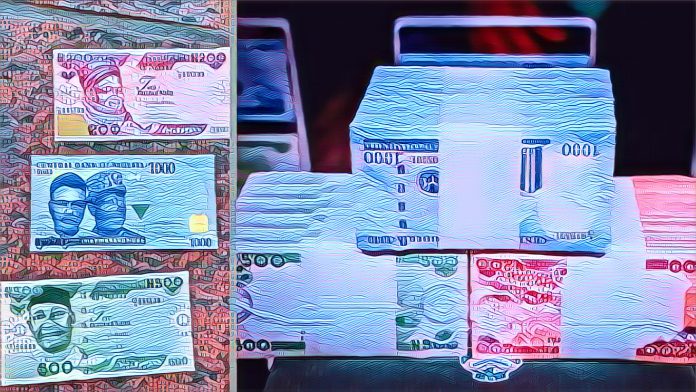Nigeria’s major banks have seen a surge in customer deposits in the first nine months of 2023, reaching a record high of N64.26 trillion ($158.6 billion). Based on a report by The Africa, this represents a 53.6 percent increase from the same period in 2022, when the total deposits stood at N41.83 trillion ($103.3 billion).
The impressive growth was driven by several factors, including the release of cash that was previously seized by the Central Bank of Nigeria (CBN) during the currency redesign exercise, the increased demand for foreign currencies following the floating of the naira, and the rising prices of petroleum products.
Currency Redesign and Naira Float
In June 2022, the CBN announced a major overhaul of the naira, the country’s legal tender, in a bid to curb inflation, reduce corruption, and improve the efficiency of the payment system. The redesign involved the introduction of new banknotes and coins, the removal of six zeros from the existing denominations, and the adoption of a new symbol for the naira.
The currency redesign had a significant impact on the banking sector, as it temporarily reduced the amount of cash available for customers and businesses. However, it also created an opportunity for the banks to attract more deposits, as they offered incentives and rewards for customers who complied with the CBN’s directives.
In addition to the currency redesign, the CBN also implemented a new foreign exchange policy in July 2022, which involved the floating of the naira and the removal of the official exchange rate.
The banks, which are the main sources of foreign currencies for the public, benefited from the increased demand, as they charged higher margins and fees for forex transactions. The banks also leveraged their digital platforms and networks to facilitate the access and availability of foreign currencies for their customers.
Petroleum Products and Stock Market
Another factor that contributed to the growth of customer deposits in the banking sector was the rising prices of petroleum products, which are essential for the country’s economy and social activities. The prices of petrol, diesel, kerosene, and cooking gas increased by an average of 40 percent between January and September 2023, according to the National Bureau of Statistics (NBS).
The increase in the prices of petroleum products was attributed to the global rise in the cost of crude oil, the devaluation of the naira, and the scarcity of foreign exchange. The increase also affected the prices of other goods and services, as well as the inflation rate, which reached 18.7 percent in September 2023, the highest in four years.
The banks, which are the main intermediaries in the stock market, earned more income from brokerage, trading, and advisory services, as well as increased the value of their own shares.
Outlook and Challenges
The outlook for the banking sector in Nigeria remains positive, as the country’s economy is expected to grow by 4.2 percent in 2023, according to the International Monetary Fund (IMF). The growth will be driven by the recovery in the oil sector, the implementation of structural reforms, and the improvement in the business environment.
However, the banking sector also faces some challenges, such as the high level of non-performing loans, which stood at 6.3 percent in September 2023, above the regulatory threshold of 5 percent.
Despite these challenges, the banking sector in Nigeria remains resilient and robust, as it continues to play a vital role in the development of the country’s economy and society.



